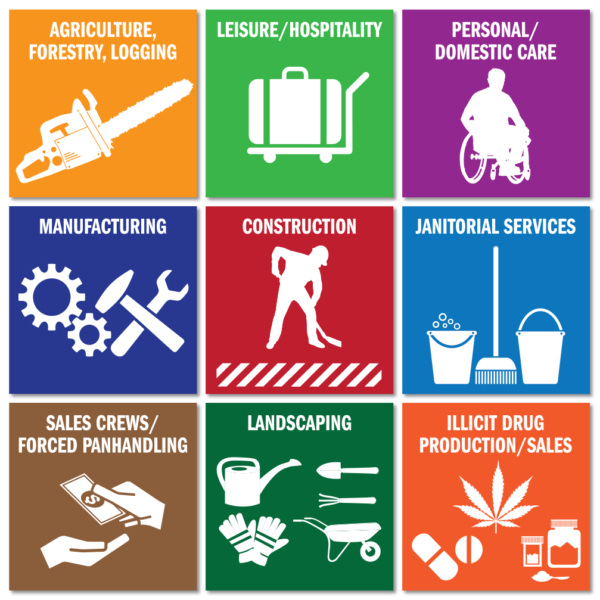Labor Trafficking in the United States Using Temporary Visas
Written By: Rachel, King County Advocate

It is a common belief that human trafficking victims are kidnapped or otherwise violently brought illegally into the country and forced to work. While this is an unfortunate reality, more often trafficking victims have come to the US legally on temporary work visas. They are then forced into labor under the guise of legal employment, especially in the fields of agricultural, hospitality, domestic service, construction, and restaurants. Temporary work visas are often tied to a single employer, and a person is deportable if they leave that employer, and traffickers will use this against their victims using the threat of deportation as a constant tool for exploitation.
Additionally, the recruitment fees that can be attached to these visas are also leveraged to continually keep the victim in a financial debt to the trafficker. The victim will be told their labor and wages are being used to pay off their debt, and this will continue indefinitely as the trafficker will never consider their debt paid and thus not pay the workers for their labor. In many circumstances, their documentation is taken from them, they are lied to about their rights or punished for standing up for legally protected rights, and are given false contracts or contracts in languages that they do not understand.
According to Polaris Project, to help combat the use of temporary work visas as a means to traffic people by supporting legislation that:
- Unties all visa categories so workers are no longer required to work for a single employer as a condition of their work visa.
- Enforces bans on recruitment fees so foreign labor recruiters are barred from collecting any money from would-be visa holders for any services or activities, including the facilitation of paperwork or travel services. Companies should also be held liable for the use of recruiters who charge or take money from workers as a condition of employment.
You can always report any suspicion of human trafficking to National Human Trafficking Hotline at 1-888-373-7888 or texting “BeFree” (233733). Someone might be in labor trafficking if they:
- Feel pressured by their employer to stay in a job or situation they want to leave
- Owe money to an employer or recruiter and/or not being paid what they were promised or are owed
- Do not have control of their passport or other identity documents
- Are living and working in isolated conditions, largely cut off from interaction with others or support systems
- Appear to be monitored by another person when talking or interacting with others
- Are being threatened by their boss with deportation or other harm
- Are working in dangerous conditions, without proper safety gear, training, adequate breaks and other protections
- Are living in dangerous, overcrowded or inhumane conditions provided by an employer
